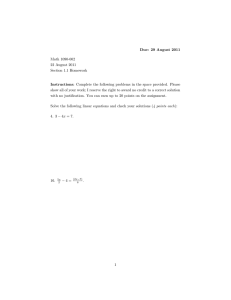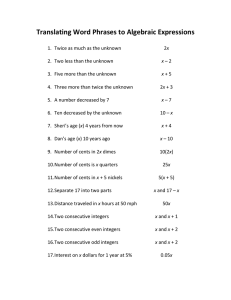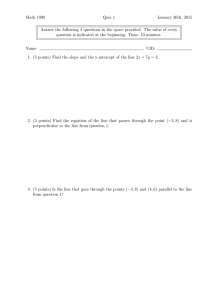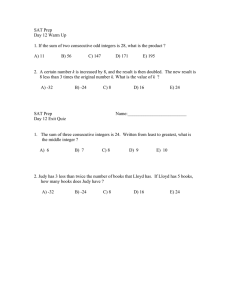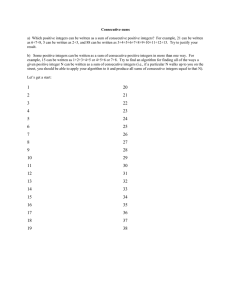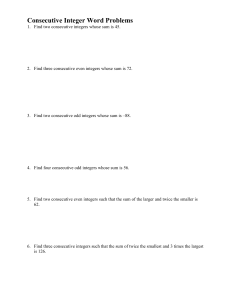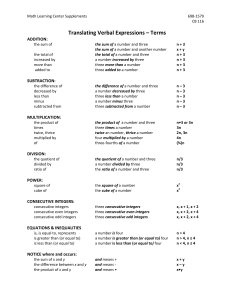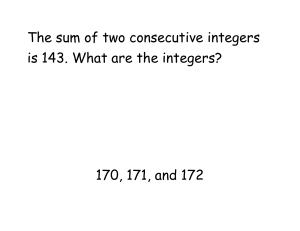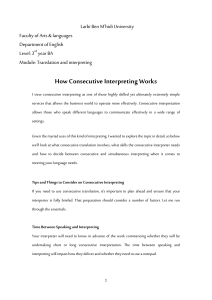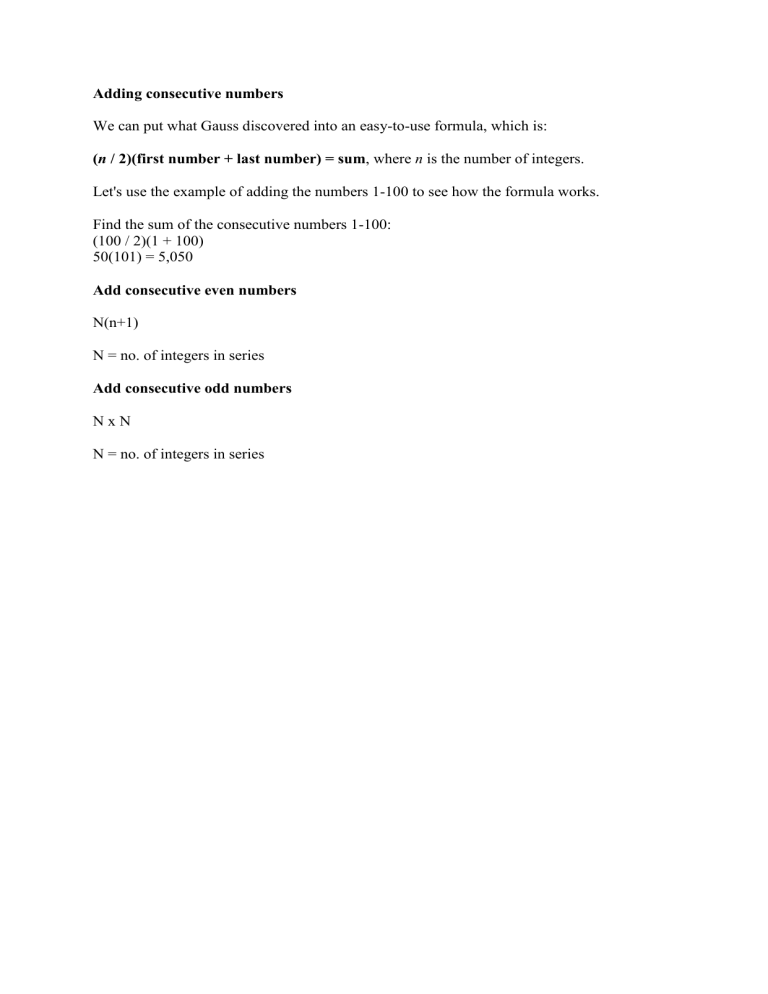
Adding consecutive numbers We can put what Gauss discovered into an easy-to-use formula, which is: (n / 2)(first number + last number) = sum, where n is the number of integers. Let's use the example of adding the numbers 1-100 to see how the formula works. Find the sum of the consecutive numbers 1-100: (100 / 2)(1 + 100) 50(101) = 5,050 Add consecutive even numbers N(n+1) N = no. of integers in series Add consecutive odd numbers NxN N = no. of integers in series
